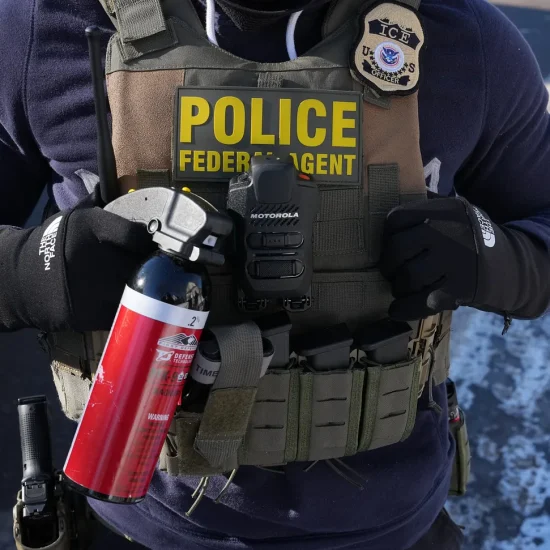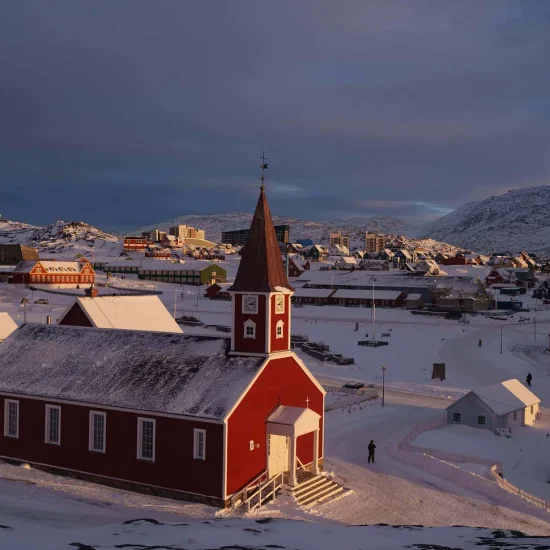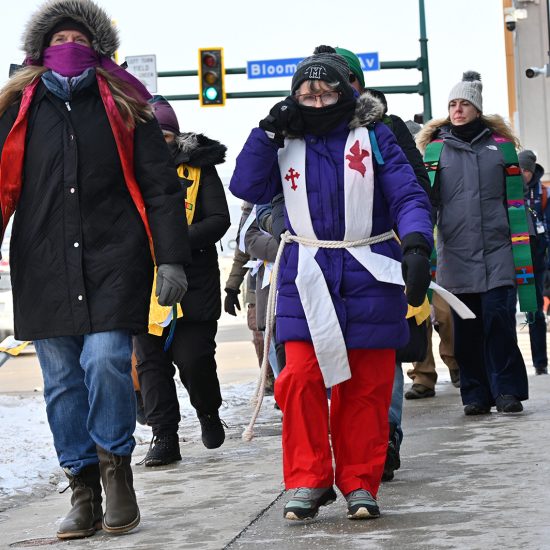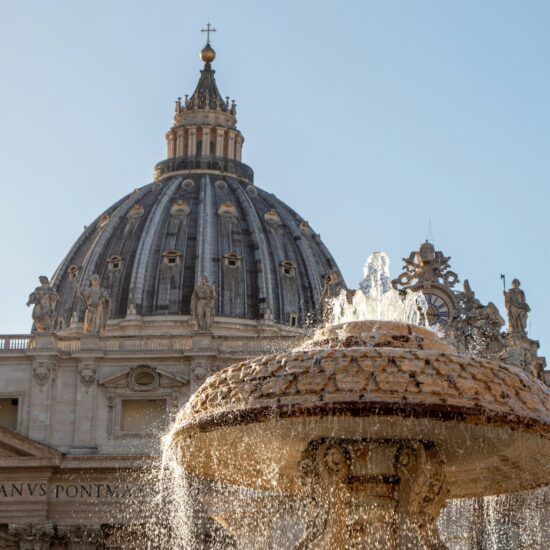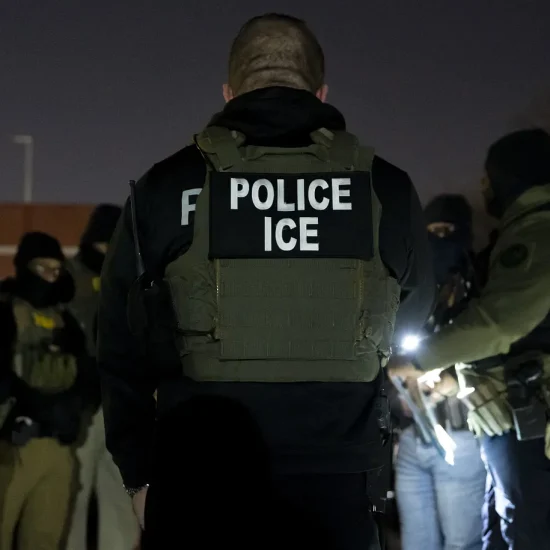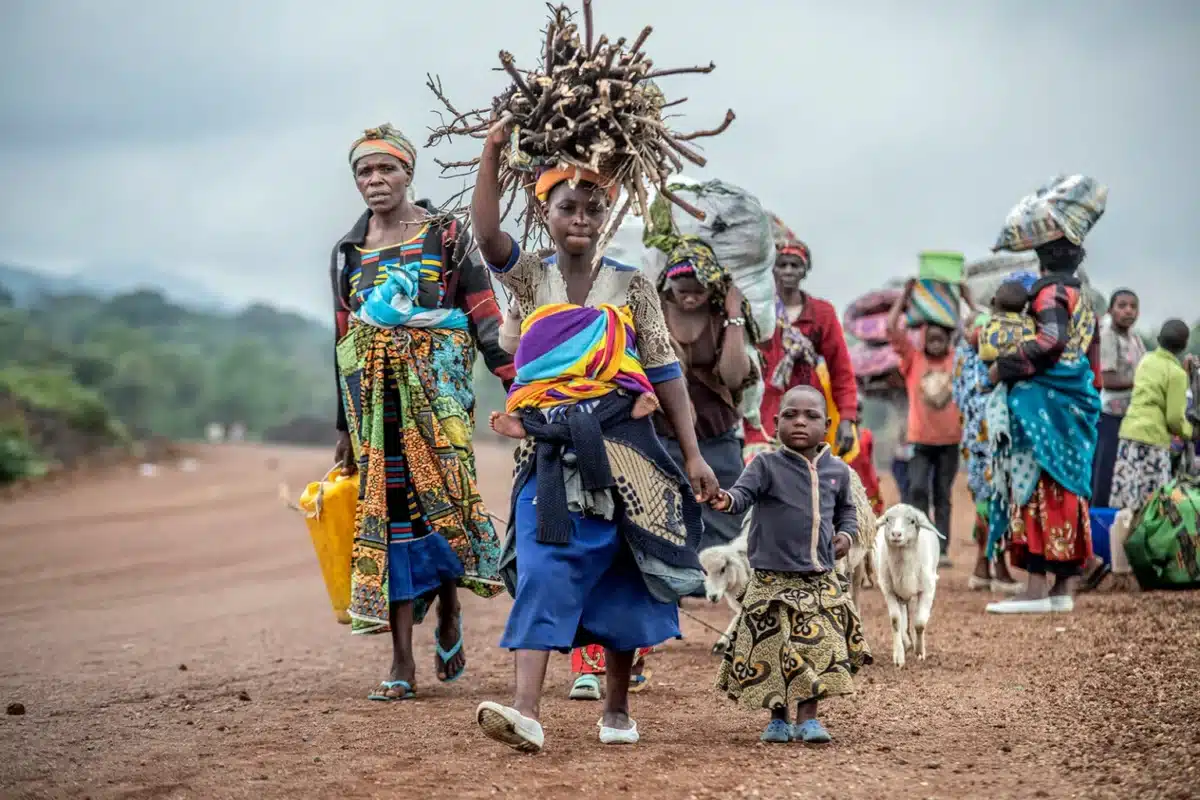
GOMA, Congo (RNS) — Esther Kabuya sat on a mattress in her tiny living room on the outskirts of this provincial capital in the far east of Africa’s third most populous country. With her two children beside her, she painfully narrated how she narrowly survived an attack by armed men in October after they stormed Rutshuru territory in the north of Goma, killing dozens of civilians, including her husband.
“It happened in the middle of the night when I had just taken my children to the pit latrine outside the house,” said the 35-year-old, breaking down in tears. “While I was helping my children to undress, I saw a group of people approaching my house. They kicked my door down, and what followed was the sound of gunshots. I knew they had killed my husband, and I had to escape and find safety.”
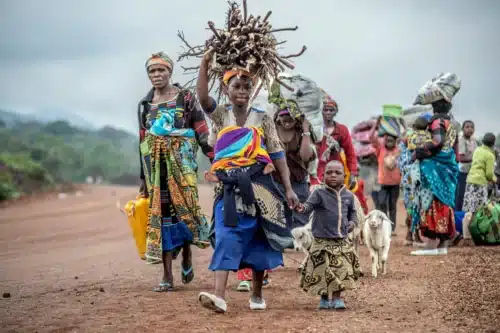
Residents flee fighting between M23 rebels and Congolese forces near Kibumba, some 12 miles north of Goma, Congo, Oct. 29, 2022. The United Nations migration agency says a record 6.9 million people have been displaced by conflict across Congo, making it one of the world’s largest displacement and humanitarian crises. (AP Photo/Moses Sawasawa, File)
On her way to Goma that night, Kabuya encountered another group of armed men, who cut and injured her leg.
“I slept in the bush with my children, and in the morning, I was assisted by people to get to Goma,” she said, her leg in a plaster cast. “People of goodwill raised money and paid my rent, and they donate food and other items.”
Kabuya’s story is one of thousands coming out of the struggle to calm deadly tensions fueled by armed groups in Congo. As military solutions by the East African regional forces have largely failed to quell the fighting, religious leaders have begun to spearhead peace negotiations and demonstrate for peace.
The country, often called DR Congo, has seen its eastern region collapse into conflict as the tribal warfare between Tutsis and Hutus in Rwanda has repeatedly spilled across Congo’s eastern border. More than 120 nonstate armed groups are said to be fighting over territory and Congo’s deep wells of natural resources.
According to a recent report by the Africa Center for Strategic Studies, nearly 6 million people are currently displaced within the country due to the violent clashes, especially in the regions of North Kivu and Ituri. Another million have sought asylum in the neighboring countries of Tanzania, Uganda, and Rwanda.
The violence spiked in late 2021 with the resurgence of the March 23 Movement, which had been dormant for the past decade.
The escalating violence and human rights violations have led to the death of thousands, as well as food insecurity, instability, and destruction of homes, markets, and infrastructure such as schools, hospitals, banks, and other government premises.
Since last year, tens of thousands of Christians, led by their priests and pastors, have taken to the streets across the country to protest violence in eastern regions, urging the Congolese government and the international community to prioritize the safety and well-being of residents.
Christianity is the dominant faith in Congo, with about half of the 95 million residents calling themselves Catholic. Last year, as the M23 Movement revived, Catholic bishops of the Archdiocese of Kisangani renewed their call for “frank dialogue” among the warring parties. In January, Pope Francis visited the country, urging the parties to pursue peace with “concrete deeds.”
Church leaders, including Protestant pastors, now say their focus is to work hard at the grassroots level to build a culture of peace and reconciliation between communities involved in conflict.
“People are angry because the resources we have as a country have not benefited them,” said Pastor Albert Nswadi of Goma International Pentecostal Church. “The people feel that corruption by the country’s leaders and the interests of external forces have contributed to the poverty rate in the country. The poverty rate in the eastern region has provoked youths into taking up arms against the state and its citizens, resulting in deaths and the destruction of properties.”
Every week, Nswadi said, religious leaders in Goma meet with traditional community leaders, political leaders, professionals, families, and other stakeholders to allow them to speak and share their concerns.
“We allow people to share the reasons why they are fighting before we urge them to forgive and reconcile among themselves,” he said. “Forgiving others allows people to overcome anger, bitterness, or revenge. We urge those attending our gatherings to tell their sons or relatives to stop fighting each other and embrace peace.”
Nswadi added, “We want to create a culture of peace where people or communities can share their concerns when there is an issue or conflict rather than take up guns to kill each other.”
Francis Mbombo, an evangelical preacher, said church leaders are also conducting weekly workshops to train community leaders and those in church leadership on how to promote peace in their communities.
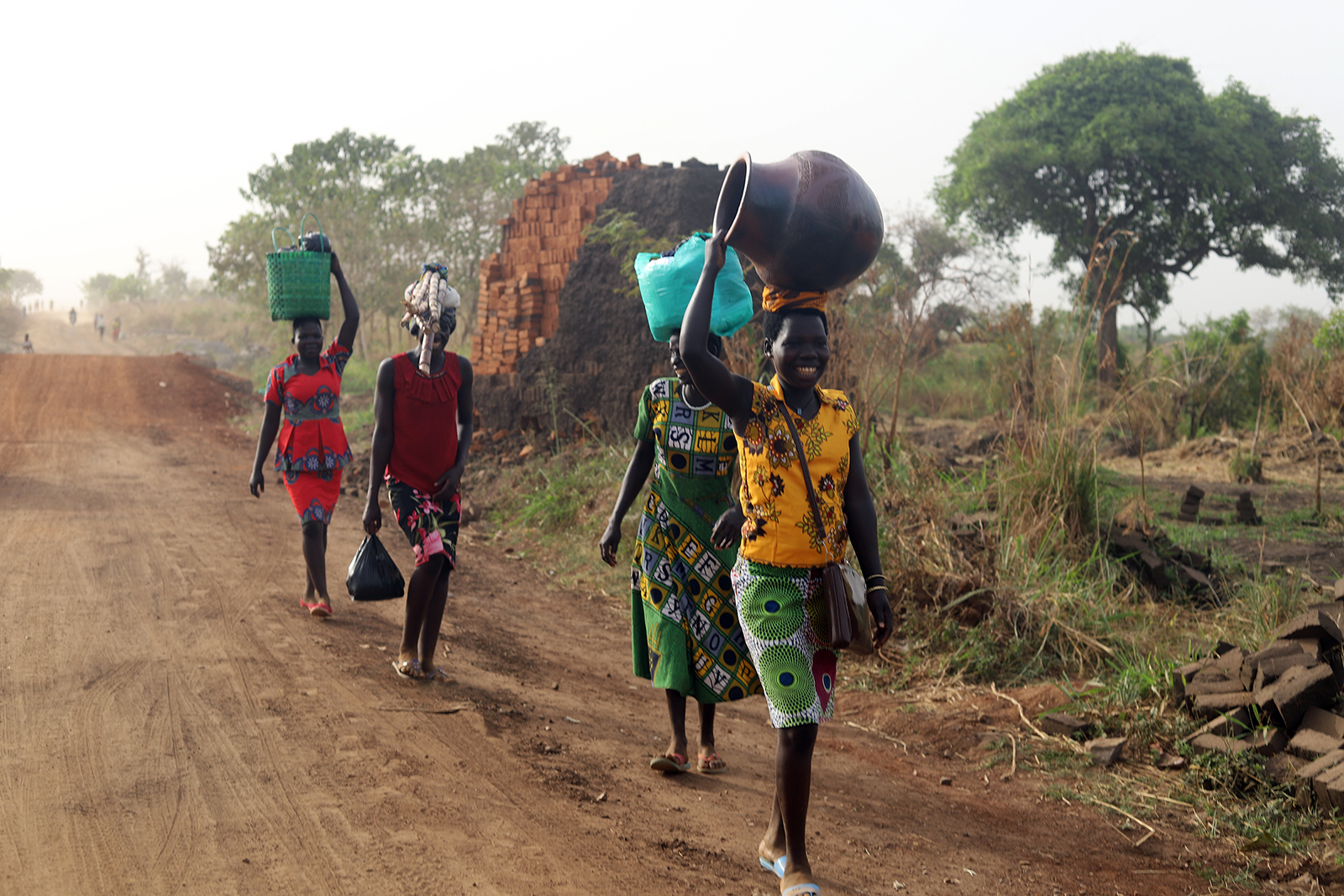
People walk along a road in eastern Congo. (RNS photo/Tonny Onyulo)
“We are basing our message on hope and telling people not to give up because God loves them, and they will one day live in peace and rebuild their lives,” he said. “The majority of churches here are also helping those who have fled the conflict to grow crops to feed their families and earn an income.”
The Rev. Antoine Kimbila, general secretary of the Community of Mennonite Brethren Churches in Congo, said the churches in his network have been hosting survivors of the conflict in Kikwit and rallying to provide food, water, clothes, blankets, sanitation, medical assistance, and other essential items.
“We believe they can only experience peace when their spiritual and physical needs are met,” said Kimbila.
Kimbila noted that the church is focused on advocating for peace, empowering displaced people to establish new lives, and offering mental health support to survivors and their families.
“We are daily preaching messages of peace to the communities so that they can live in harmony and offering counseling to survivors because many of them are traumatized and hurting,” he said, explaining that many survivors have witnessed armed groups murdering their family members and neighbors.

